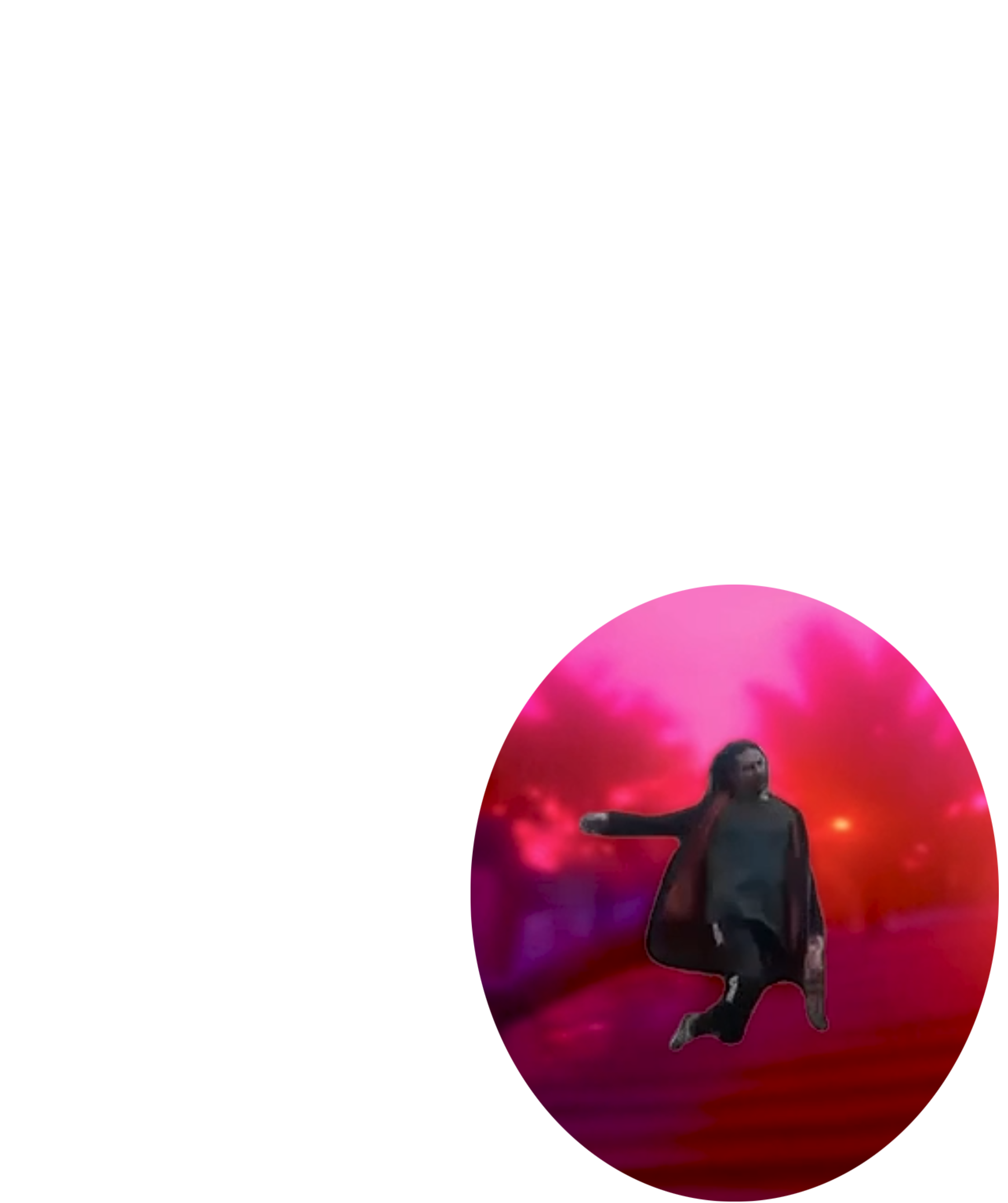
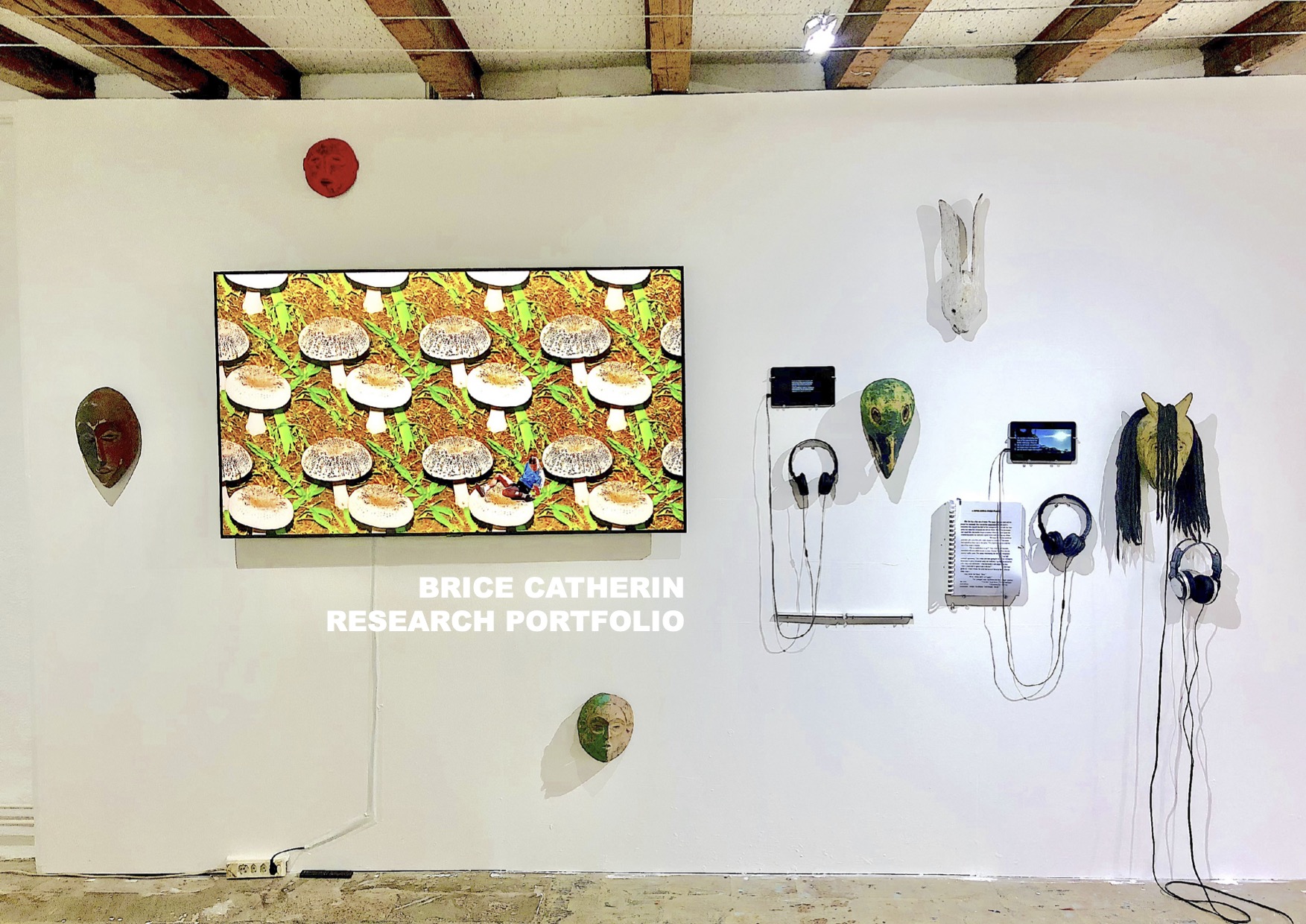
I am an intermedia artist and Participatory Action Research (PAR) scholar. I develop and contribute to projects across disciplines with participants from marginalised communities in Europe and South- ern Africa. I challenge their designation as ‘non-artists’ from an art- based PAR perspective, by forming collaborations that put artistic tools at their service. The value of arts-based PAR is its place at the nexus of art and research, which can ‘convey markers of stig- matization, privilege, and oppression, as well as thoughts, feelings, emotions, and vulnerabilities [...] that may be difficult to verbalize’. (Lenette, 2022) Therefore it is a powerful tool of investigation ap- plicable in many different fields, including education, gender, and migration studies, to name but just a few. As a methodology, it is "a research approach that privileges the active involvement of people with lived experiences of the topic as co-researchers to generate new knowl- edge and act on findings to improve their lives." (Lenette, 2022)
Beyond a methodology, PAR is also a philosophy that "radically challenges who is an expert, what counts as knowledge and, therefore, by whom research questions and designs should be crafted." (Fine & Torre, 2019)
In addition to being a tool for creating data, the outputs of art-based PAR allow dissemination of the knowledge created to a wide range of audiences including those outside of academia. This benefits the institution, the researchers, the participants, and lay audience alike.
2020 - TRANSMISSION STRATEGIES AND BLOSSOMING PARTICIPANTS IN MY COMPOSED MUSIC (Practice based PhD)
My PhD (Catherin, 2020) was looking at how, in my own music, the idiosyncrasies of the participants (makers, performers, audience members) were highlighted and enhanced through the experience of the pieces, as well as the importance of the participants’ “blossoming” in the process. Challenging a traditionally hierarchical process (the composer ‘controls’ the performers while the audience assists ‘passively’), I designed pieces that celebrated the participants’ musical and technical idiosyncrasies by making them the raw material of said pieces. I showed how this process both created contrasted, complex and unexpected musical material, and contributed to a sense of wellbeing for the participants, who’s agency and responsibilities had become the core of the music. This practice laid the ground to my future art-based PAR projects where I explored questions such as: How can we design artistic projects that both gives agency to the participants (as co-researchers) and serves as an efficient tool of investigation? What artistic strategies and practices can build trust with the aim of co-creating more insightful and unexpected data? How can artists put their skills at the service of participants in a way that leads to ‘blossoming’ of both?
2022 - It could have been worse
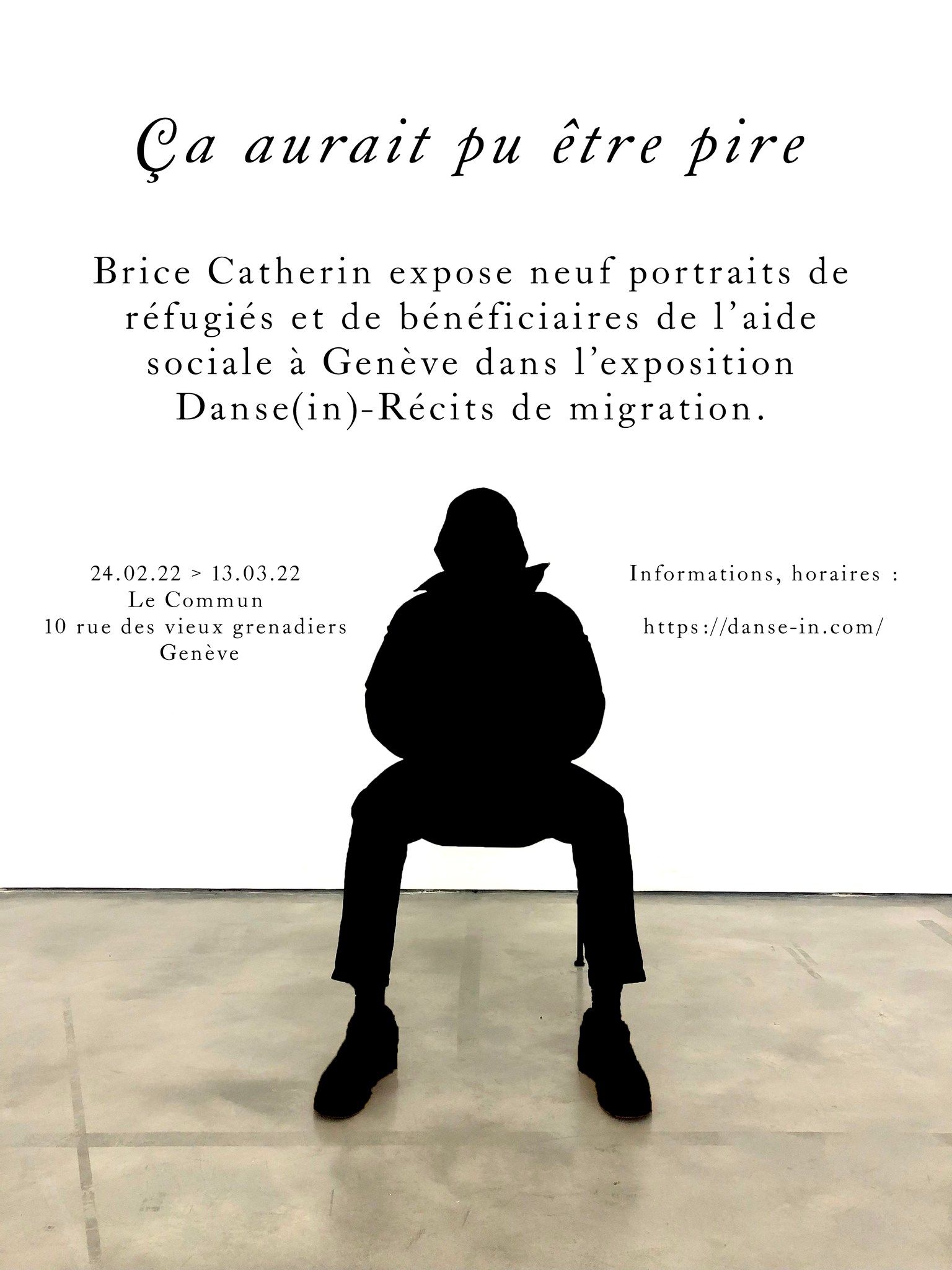
From August 2021 to January 2022, the association Overseas Culture Interchange invited me to create nine intermedia portraits of refugees and welfare recipients in Geneva, Switzerland. Each por- trait was made in collaboration with its subject, adapting as closely as possible to their concerns. Thus, one of the portraits is a patchwork of almost silent photos, another one is a web app, and others are simple videos. The art-based approach allowed the participants to demonstrate they were the experts of their own lived experiences, to keep full agency on the outputs, and to discuss a wide range of topics, from mundane considerations (Blomfield and Lenette, 2018) to their fatigue of being under the constant scrutiny of ‘customs officers, cops, civil servants, journalists, employers, classmates, and others [including artists and researchers]’ (in Ab- du’s words from his portrait). The informal, and sometimes playful set-ups (see Roshan’s portrait for example) helped with sharing very personal and painful experiences.
For the full series, click here.
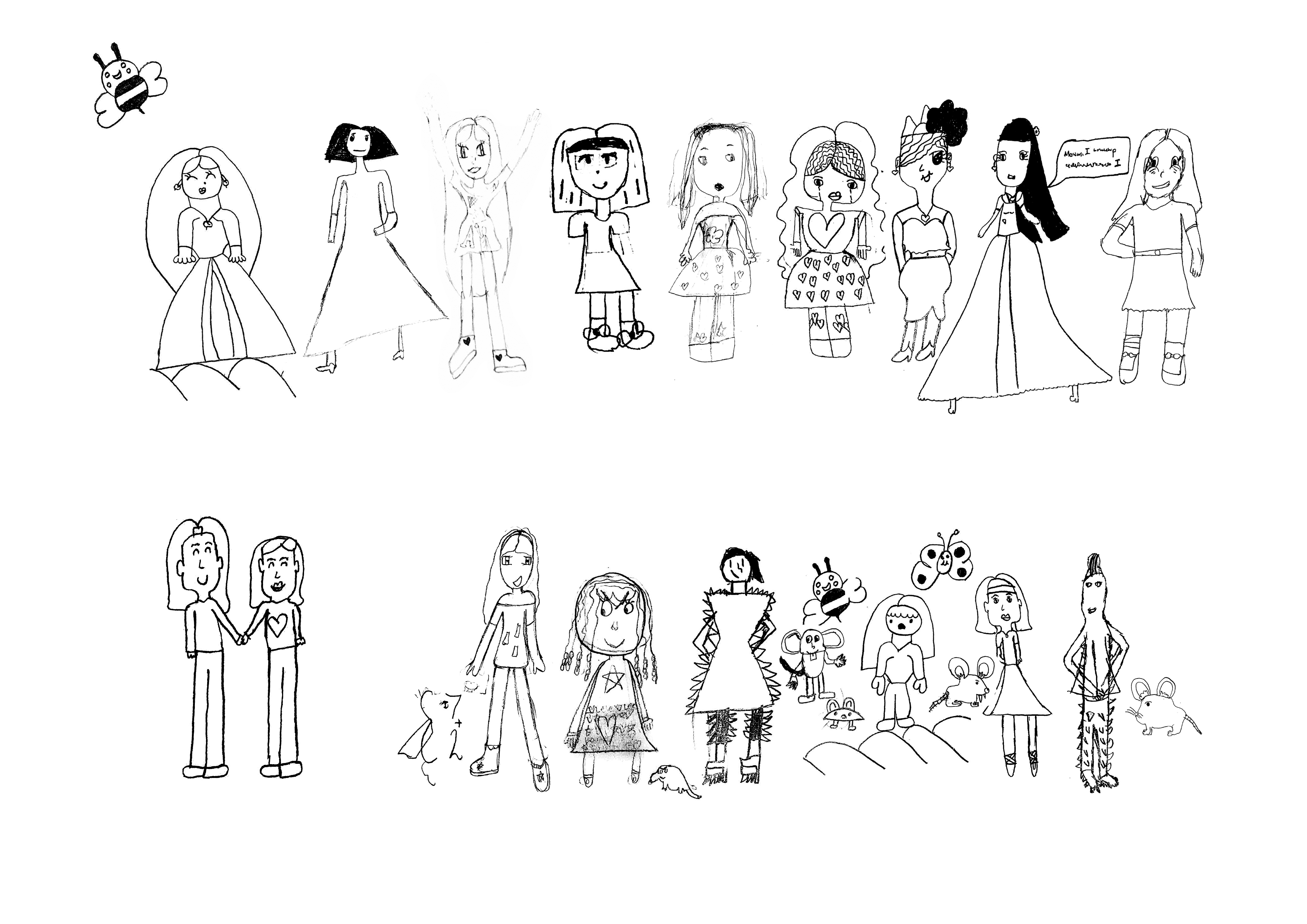
Our Stories (2023) is a collection of stories written by primary school children in Lusaka and Ndola, Zambia. The project was developed alongside decolonial researcher Mukuka Kasonde who is Zambian and questioned what role children can play in develop- ing the literature that they use. The project was operationalised through a collaborative writing workshop that unexpectedly but interestingly turned to matters of race, gender dynamics and national politics. As well as conducting the workshops my artistic role was to collate the output from the workshops into a book format which was handed over to the schools. We are currently writing a paper about the experiences of conducting these workshops.
As an artist, I have experience using generative artificial intelligence in artmaking and this was one of the tools we used in one workshop. While none of the material it produced was kept in the sto- ries, it triggered very insightful reactions from the children. Therefore, another paper we are developing interrogates the impact of the use of generative artificial intelligence in such workshops using a decolonial lens.
You can read Our Stories here.
2024 - Our Stories: the Unesco RIELA podcast
Our Stories (see above) were also the topic of a podcast organised and hosted by the UNESCO Chair of the University of Glasgow in January 2024.
2024 - Making Mycorrhizal Noise
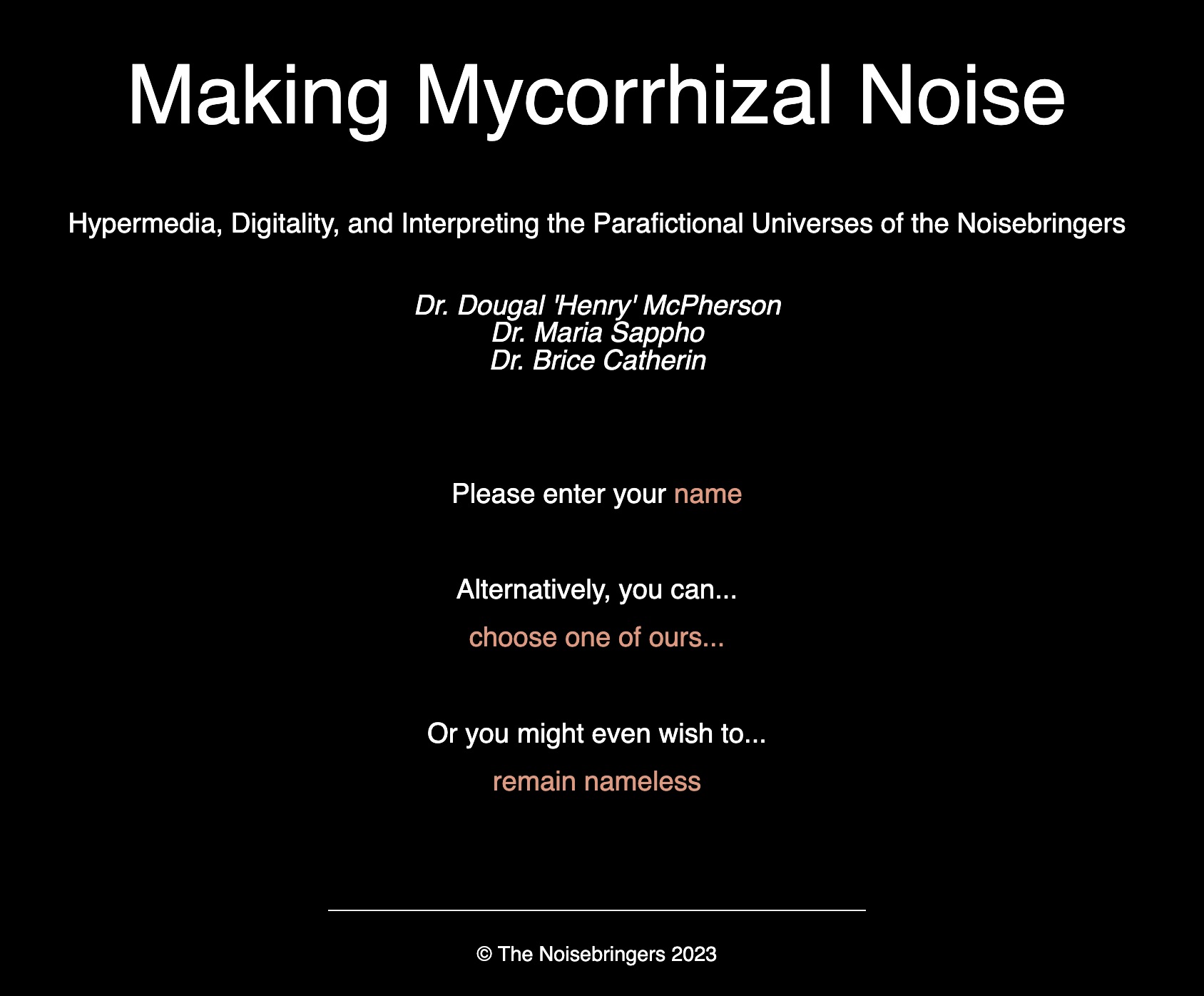
Making Mycorrhizal Noise (2024), the article you are about to read (and watch, and listen to), is a performative exploration of Mycorrhizal Noise - a work of collaboratively written, improvised parafiction created by a trio of artist-academics called The Noisebringers: Dr Brice Catherin, Dr Maria Sappho, and Dr Henry McPherson.
You can read, watch and listen to it by clicking here.
This article proposes that gaps in intercultural communication should not necessarily be bridged but can also be celebrated, reflecting on Derrida’s concept of ‘unconditional hospitality’. It introduces the concepts of blossoming and benevolence as possible tools useful in doing so. It outlines the development of these concepts through two of my own projects as an artist and researcher during which they became practical and key elements. It then discusses how these experiences and the tools I developed may be transferable and useful to other art and research practices.